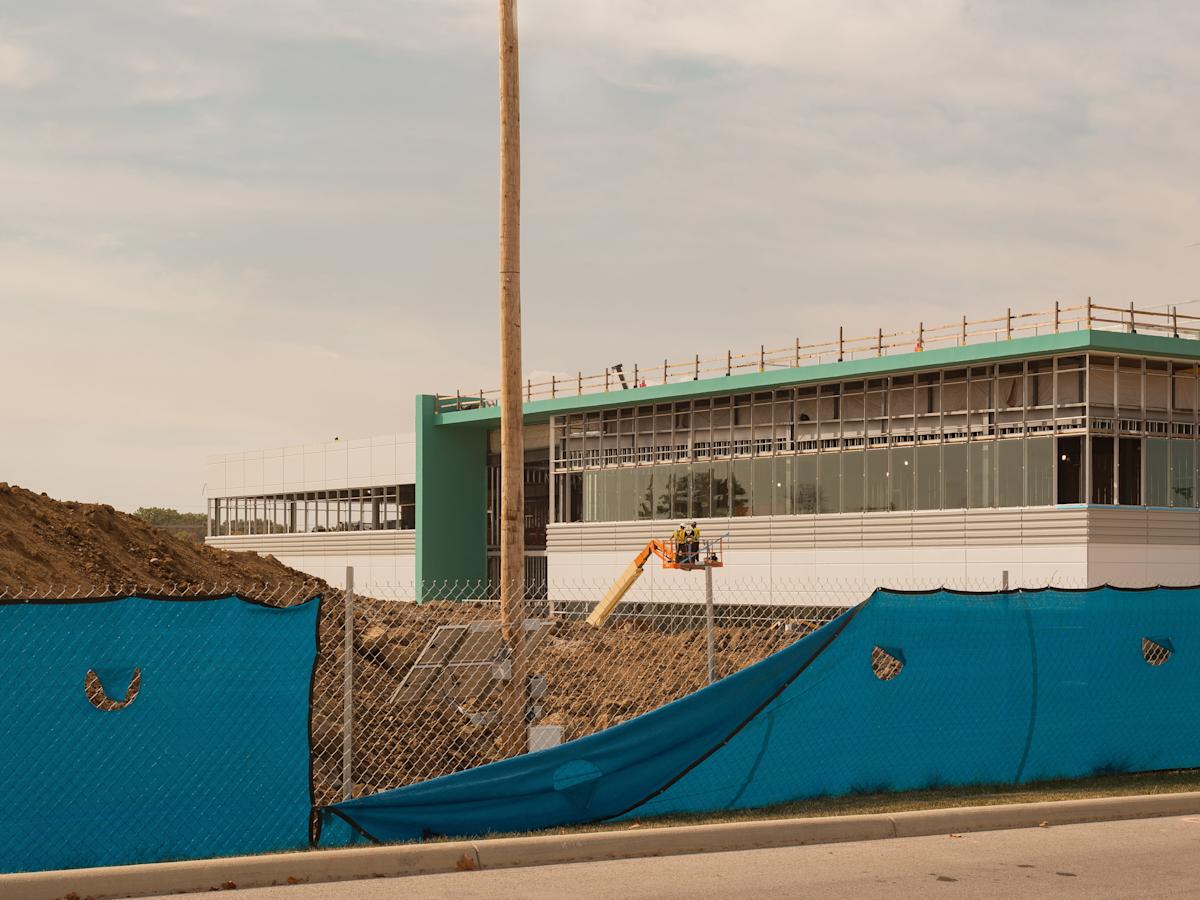Welcome back to our Sunday edition, where we round up some of our top stories and take you inside our newsroom. BI’s Jake Epstein spent the night aboard a US Navy destroyer traveling from England to France. He said the space was tight, as he got a taste of what daily life is like.
By the way, you can get the latest on modern warfare, defense tech innovations, and more with BI’s new Defense Flash delivered to your inbox every week. Sign up here!
On the agenda today:
But first: BI has the receipts on the impact of AI data.
If this was forwarded to you, sign up here. Download Business Insider’s app here.
To fulfill the promise of AI, data centers have sprung up around the country, using water, land, and electricity to deliver computing power for the booming tech.
A team of BI reporters and editors sought to quantify the spread of these centers and show the impact on their surroundings. I chatted with two lead reporters on the project, Hannah Beckler and Dakin Campbell, about their takeaways.
Hannah, Dakin, in a nutshell, how many data centers are there in the United States, and how fast is the boom happening?
There are 1,240 data centers either built or approved for construction in the United States. That’s four times as many as there were in 2010.
What is the biggest worry with the spread of data centers — the green space they use, the water, the electricity? And if these concerns are urgent, why aren’t towns pushing back?
Electricity and water use are large concerns because they are limited resources. But data centers often bring tax revenue, which towns use to build roads, schools, and fire stations. Public officials have been caught in the middle, with some towns pushing back and others openly welcoming the industry with tax breaks.
Are there benefits to data centers, both for nearby property owners and for the promise of AI?
AI could usher in tremendous benefits, from business savings to life-saving science. Many also argue that a leading AI industry bolsters national security. For nearby property owners, the benefits are typically the tax revenue their towns collect, short-term jobs in construction (which can also bring road congestion), and perhaps a few dozen longer-term tech jobs in their community.
Welcome back to our Sunday edition, where we round up some of our top stories and take you inside our newsroom. BI’s Jake Epstein spent the night aboard a US Navy destroyer traveling from England to France. He said the space was tight, as he got a taste of what daily life is like.
By the way, you can get the latest on modern warfare, defense tech innovations, and more with BI’s new Defense Flash delivered to your inbox every week. Sign up here!
On the agenda today:
But first: BI has the receipts on the impact of AI data.
If this was forwarded to you, sign up here. Download Business Insider’s app here.
To fulfill the promise of AI, data centers have sprung up around the country, using water, land, and electricity to deliver computing power for the booming tech.
A team of BI reporters and editors sought to quantify the spread of these centers and show the impact on their surroundings. I chatted with two lead reporters on the project, Hannah Beckler and Dakin Campbell, about their takeaways.
Hannah, Dakin, in a nutshell, how many data centers are there in the United States, and how fast is the boom happening?
There are 1,240 data centers either built or approved for construction in the United States. That’s four times as many as there were in 2010.
What is the biggest worry with the spread of data centers — the green space they use, the water, the electricity? And if these concerns are urgent, why aren’t towns pushing back?
Electricity and water use are large concerns because they are limited resources. But data centers often bring tax revenue, which towns use to build roads, schools, and fire stations. Public officials have been caught in the middle, with some towns pushing back and others openly welcoming the industry with tax breaks.
Are there benefits to data centers, both for nearby property owners and for the promise of AI?
AI could usher in tremendous benefits, from business savings to life-saving science. Many also argue that a leading AI industry bolsters national security. For nearby property owners, the benefits are typically the tax revenue their towns collect, short-term jobs in construction (which can also bring road congestion), and perhaps a few dozen longer-term tech jobs in their community.











Leave feedback about this